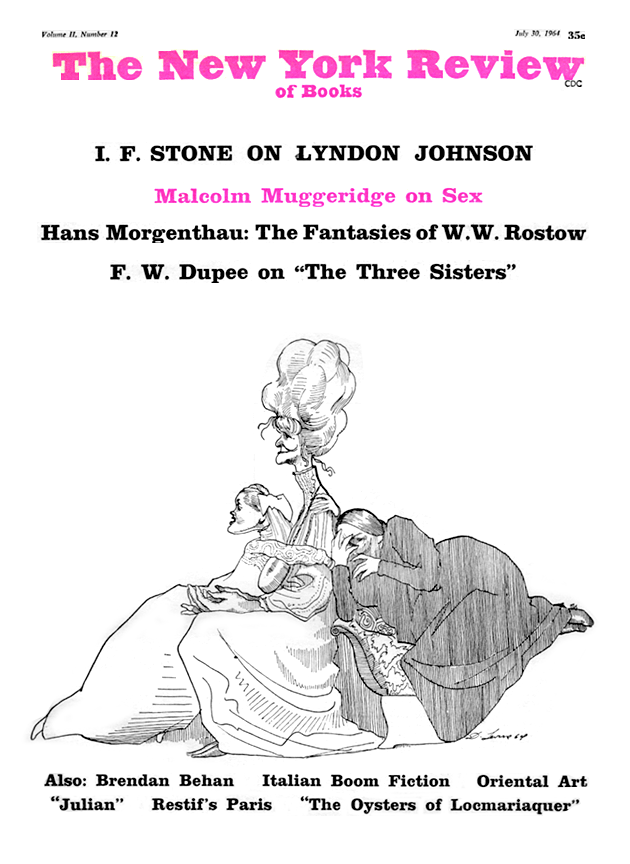In response to:
The Suez Question from the May 28, 1964 issue
To the Editors:
May I please demur to some of Mr. Crossman’s hostile misrepresentations in his review of my Dulles Over Suez? His politically-inspired invective is as irresponsible as it is violent….
First, I took immense pains to procure all the evidence, documentary and oral. This inevitably takes space: But it does enable the reader, contrary to what he would glean from Crossman’s distortions, to find the data on which he could, if he wished, to take a view of Dulles’s diplomacy contrary to mine. This was the fairness of my intention, and it was achieved.
Secondly, Crossman does allow me an “unusual” virtue as a political scientist: “A real talent for putting himself into the situation he is describing and breathing life into dead controversy.” Yes, indeed! But painting a true picture costs pages. And then—“dead controversy”? With Nasser, as predicted, more swollen-headed than before and conducting a war in Yemen and close to Aden?
Crossman avers that he likes scholars who get under the skin of British politics. Evidently, however, his admiration stops short as soon, as in my book, they get too deeply under the skin. And this is the head and front of my offense to Mr. Crossman. I caught him red-handed, for he was deeply implicated in the Labour Party leadership in the Suez affair which he confesses (inconsistently with “dead controversy”) “was the most searing experience of my whole political life.” (How about Spain in 1936?) The proof of the fairness and insight of my book is that Conservatives as well as Labour leaders find something in it to grumble about and also to be proud of. But Crossman, a most violent political partisan, is hardly, I think, playing cricket when he masquerades as a reviewer, let us say, in the equable tradition he observed in those long-ago days when he was writing about Plato, Socrates, and God.
Crossman, hunting about for every word that can wound, charges that I have written a “caricature” of Dulles. Of course, he desperately needs to make this allegation to cover up his position of 1956. Actually, sir, I have never given more painstaking care to the consideration of the strength and weaknesses of a statesman than to Dulles. I expect that Crossman did not splutter when I did a similar study of Mussolini in 1935? He was nurtured on that book. I do not, as he recklessly charges, make a black and white contrast between Dulles and Eden. The charge is “interest-begotten” tosh. So is the suggestio falsi that I “discreetly sweep Eden, under the rug.”..
The final point of Crossman’s I wish to traverse is his hesitation to accept my view that the Secretary and the President were intimidated by Russia. I did not say that this was the only cause of their fumbling. I am not a believer in monistic causation. I posed it as a very high probability, in company with some other motives…
Herman Finer
Department of Political Science
University of Chicago
This Issue
July 30, 1964


